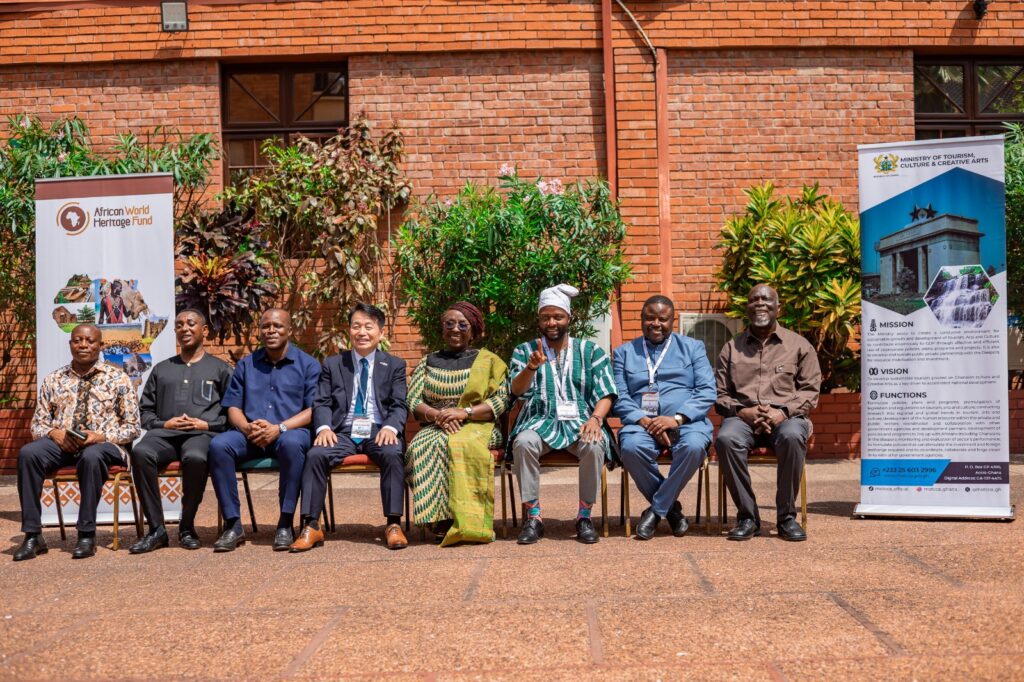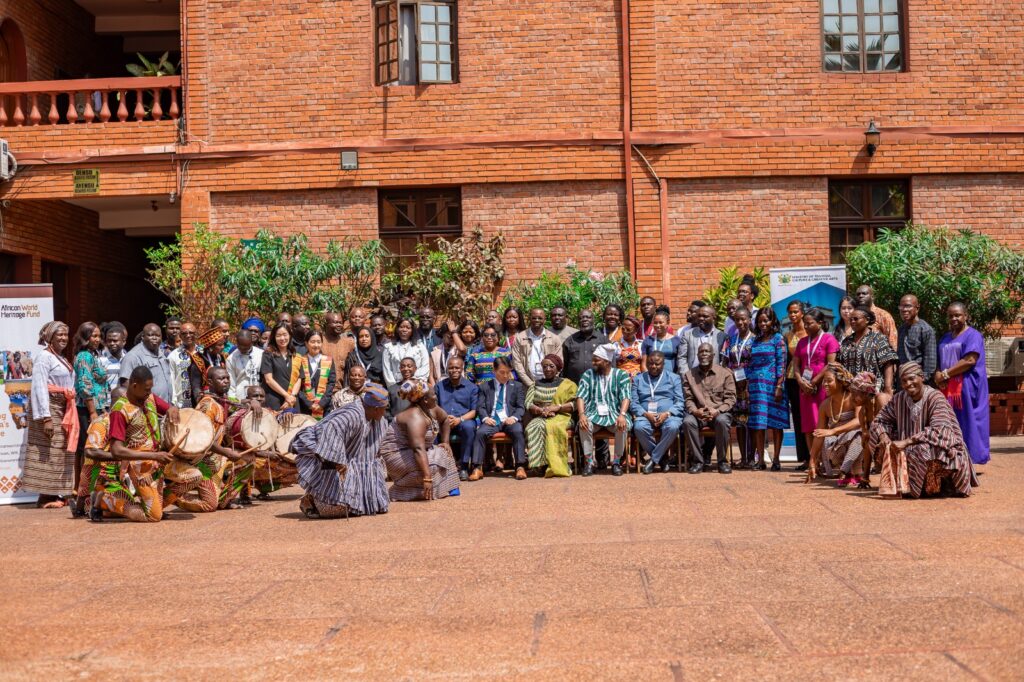
“When you choose to make children, you don’t get to decide what that child should be,” declared Minister for Tourism, Culture and Creative Arts, Abla Dzifa Gomashie, as she opened the Regional Workshop on the Interpretation of World Heritage in Africa on Monday.
“Let this inspire parents and all of us in the creative space. You can be anything you want to be if your heart follows.”
Her message on nurturing creativity and individuality set a powerful tone for the week-long workshop taking place at the Coconut Grove Regency Hotel in Accra. The event has convened heritage experts, culture professionals, and global partners to rethink how African heritage is interpreted and communicated.
The workshop is jointly organised by the Ministry of Tourism, Culture and Creative Arts, Ghana Museums and Monuments Board (GMMB), the African World Heritage Fund (AWHF), WHIPIC, the Ghana Commission for UNESCO, UNESCO Accra, and supported by the Korea Heritage Service.
Speaking on behalf of President John Dramani Mahama, Hon. Gomashie welcomed participants and emphasised Ghana’s commitment to strengthening the protection, management, and interpretation of heritage sites across the continent.
“We must be in charge of our own narrative,” she said. “Until the lion learns to write, the story will always glorify the hunter.”

The Minister also highlighted Ghana’s recent milestone achievement, securing UNESCO World Heritage status for the Amphitheatre textile tradition, and called for interpretation approaches that uphold authenticity, inclusiveness, and leadership from local custodians.
Heung Nyeon Kim, Deputy Director-General of WHIPIC, expressed appreciation for Ghana’s hospitality during his first visit to Africa. Inspired by Ghana’s warmth and creativity, he reaffirmed WHIPIC’s commitment to supporting African-led, community-focused heritage interpretation models.
Dr. Albino Jopela, Executive Director of AWHF, urged participants to challenge outdated narratives and reclaim African perspectives. Despite Africa being the cradle of humankind and a global biodiversity hotspot, the continent hosts just 154 out of more than 1,200 UNESCO World Heritage Sites — many still framed through colonial-era lenses.
“Re-thinking interpretation must not be seen as secondary; it is central to why we, as Africans, should care about these sites,” he stressed.
Throughout the week, participants, including site managers, cultural officers, and technical experts, will explore strategies aligned with UNESCO’s Culture 2030 Indicators, focusing on education, tourism, community empowerment, and sustainable development.
Other key speakers included Edmond Moukala, UNESCO Representative to Ghana; Dr. Osman Tahidu Damba, Secretary General of the Ghana Commission for UNESCO; as well as Joseph K. Amoah, Chief Director, directors, agency heads, and staff of the Ministry.
The workshop is expected to conclude with actionable recommendations to help African member states enhance interpretation practices, preserve authenticity, and protect heritage sites as living sources of identity, pride, and resilience.
Source: Delassie Mabel Awuku, PR Unit, MoTCCA








